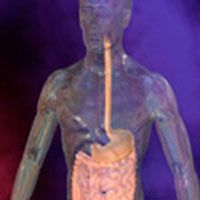Article
Study Confirms Benefits of Exercise with Gastric Bypass Surgery
Author(s):
Gastric bypass surgery has been shown to improve quality of life for overweight and obese patients in a number of ways, including improving insulin sensitivity. Surgery combined with exercise has been shown to produce even greater benefits. A recent study evaluated the link between the two approaches and their effect on overall insulin sensitivity.

Gastric bypass surgery has been shown to improve quality of life for overweight and obese patients in a number of ways, including improving insulin sensitivity. Surgery combined with exercise has been shown to produce even greater benefits. A recent study evaluated the link between the two approaches and their effect on overall insulin sensitivity.
The results of the study, published in the Journal of Clinical Investigation were based on a patient pool of 128 men and women from East Carolina University and the University of Pittsburgh who had undergone gastric bypass surgery between one and 3 months prior to the start of the study. They were then split into two groups, with one taking part in a “6-month semi-supervised moderate exercise program,” and the second being enrolled in a “health education” option. The exercise program involved roughly 147 minutes of exercise on a weekly basis, with most patients completing at least 120 minutes of exercise in a week.
During the study, the patients were observed for insulin sensitivity as well as cardiorespiratory health and body composition. Of the original 128 participants, 119 finished the program including 95% of the control group members and 91% of the exercise participants. The authors noted both groups saw a decrease in weight and fat mass (P < 0.001) along with improvements in insulin sensitivity (ITT: CON vs. EX; +1.64 vs. +2.24 min—1/μU/ml,P = 0.18 for Δ, P < 0.001 for time effect).
According to the authors, the exercise group achieved better results in improving insulin sensitivity (PP: CON vs. EX; +1.57 vs. +2.69 min—1/μU/ml,P = 0.019). Further improvements were also seen in cardiorespiratory fitness for the exercise group compared with the control group.
The study was funded by the National Institutes of Health/National Institute of Diabetes and Digestive and Kidney Diseases and an NIH/National Center for Research Resources/Clinical and Translational Science Award.




